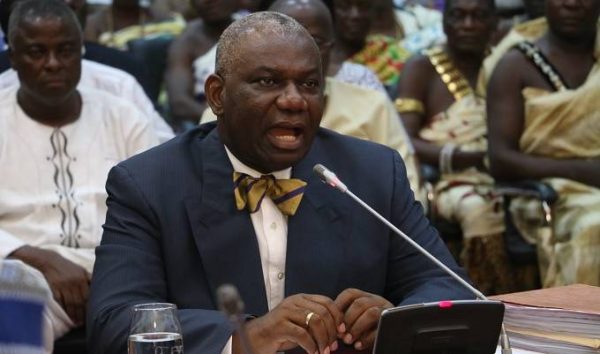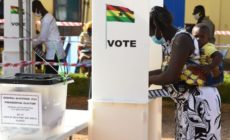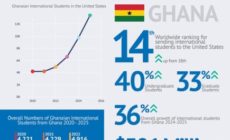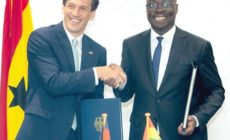The report titled ‘Fiscal Consolidation to Accelerate Growth and Support Inclusive Development,’ further predicted that oil revenues will decline sharply by 2025 and cease altogether.
The Bank has therefore advised government to be more efficient in its expenditure, particularly with regards to its capital budget, stressing that “sustaining economic growth as oil output declines would require increased competitiveness and progressive diversification in the non-resource sectors.”
It said increased attention to the agricultural sector will be vital as the oil industry and services sector temporarily draw labour and capital away from agricultural production.
“Continued investment in both the food and cash-crop subsectors will not only have a positive impact on poverty reduction, but a thriving rural economy will be better equipped to absorb excess labour and capital after the country’s oil reserves are depleted,” the World Bank said.
The report put total revenue from the Ghana’s oil reserves at $26 billion, out of which “$3.2 billion was already realised between 2009 and 2015.”
The Bretton Woods institution projected that Ghana’s oil revenue will peak in 2023 and decline thereafter, stating that “a projected increase in oil output would boost Ghana’s domestic revenue over the medium term “but this effect will likely be short-lived.”
“If prices were to remain at their low 2016 levels for the next two decades, Ghana’s total public oil revenue would drop from US$23billion to US$10billion,” the report said.
In 2016, Brent crude oil prices totalled an average of $43.55 per barrel down significantly from the 2014 average of $99 per barrel.
To assuage the effect of such a huge dip in the country’s revenue kitty, the World Bank urged government to come up with a well designed investment strategy combined with structural improvements in expenditure efficiency.
Among others, the report said reducing tax expenditures will enable government broaden its tax base and mitigate its reliance on unsustainable resource revenues.
“A sustained focus on health and education will build the capacity of the national workforce, bolstering economy-wide competitiveness and facilitating economic diversification beyond the extractive industries,” the World Bank said.
Due to the volatility of prices and production, coupled with the terminal decline in output to begin by 2025, the Bank was of the view that managing anticipated surge in oil revenue will be challenging and so advised moderation in government’s forecasting of revenues from the sector.
Ghana’s 2011 Petroleum Revenue Management Act (PRMA) defines the methodology for forecasting oil revenues based on moving averages of historical and expected values for both prices and production.
The World Bank report noted that the resulting forecasts form basis for budget planning, adding that “these forecasts are frequently inaccurate, often by wide margins; ideally, oil-revenue projections should err on the side underestimation, as overestimating future revenues can disrupt investment execution and undermine debt sustainability.”
Reacting to the report, Executive Director of the Africa Centre for Energy Policy (ACEP), Mr Ben Boakye said it was crucial for governments to be cautious and prudent in how revenues from oil are utilized.
“This report is re-emphasizing the point that we have a limited resource and so we need to be prudent in the way we manage our revenues,” he stated.
Economist, Mr Samuel Bekoe with the Ghana Oil and Gas for Inclusive Growth (GOGIC) also described the findings as “a wake-up call for Ghana, especially having spent at least 6 years in oil production.”
He noted that if the price of the commodity stayed low as the report pointed to, things will be dire for the country.
According to him, Ghana had to deal with a lot of fiscal challenges, which GOGIC was helping government with.
Oil: Ghana risks $13 billion loss
- Posted on
- Comment
 -If price remains well below $50 for 20yrs
-If price remains well below $50 for 20yrs
GHANA is set to lose a whopping $13billion in oil revenues if the price of the commodity drops and remains below $50 for the next two decades, a report by the World Bank Group has revealed.










 (Selorm) |
(Selorm) |  (Nana Kwesi)
(Nana Kwesi)